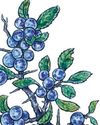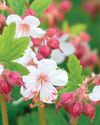
WIND turbines have long been objects of controversy. The erection of large, prominent and moving manmade structures in the landscape has seemed shocking to some. To make matters worse, wind farms have necessarily been erected in remote areas loved for their wild beauty. Attitudes towards them, however, have undoubtedly softened in the past few years. A widespread acknowledgement of the reality of climate change and, more recently, the massive spike in energy prices caused by the war in Ukraine have done a great deal to shift attitudes. Certainly, if we are to enjoy affordable power and reduce our carbon emissions, wind is clearly a hugely important future source of clean energy. Whether we love or loathe them, therefore, they are a fixture for the foreseeable future.
There is no better way to learn about wind farms than by visiting the largest on-shore example in the UK. Whitelee Wind Farm, built by Scottish Power between 2007 and 2009, comprises 215 individual turbines set out across 32 square miles of peat moor in East Renfrewshire, East Ayrshire and South Lanarkshire. Although Scotland constitutes only 1% of the European landmass, it receives a disproportionately high quantity of the area’s wind. This makes it particularly well suited to wind-generated power; that’s in contrast to much of England, which has less wind and more sun, making solar panels a better source of renewable energy. Scotland’s wind may also explain why the first turbine to generate electricity was set up by a Glasgow engineer, Prof James Blyth, to power his holiday home at Marykirk in 1887.
Esta historia es de la edición June 14, 2023 de Country Life UK.
Comience su prueba gratuita de Magzter GOLD de 7 días para acceder a miles de historias premium seleccionadas y a más de 9,000 revistas y periódicos.
Ya eres suscriptor ? Conectar
Esta historia es de la edición June 14, 2023 de Country Life UK.
Comience su prueba gratuita de Magzter GOLD de 7 días para acceder a miles de historias premium seleccionadas y a más de 9,000 revistas y periódicos.
Ya eres suscriptor? Conectar

Kitchen garden cook - Apples
'Sweet and crisp, apples are the epitome of autumn flavour'

The original Mr Rochester
Three classic houses in North Yorkshire have come to the market; the owner of one inspired Charlotte Brontë to write Jane Eyre

Get it write
Desks, once akin to instruments of torture for scribes, have become cherished repositories of memories and secrets. Matthew Dennison charts their evolution

'Sloes hath ben my food'
A possible paint for the Picts and a definite culprit in tea fraud, the cheek-suckingly sour sloe's spiritual home is indisputably in gin, says John Wright

Souvenirs of greatness
FOR many years, some large boxes have been stored and forgotten in the dark recesses of the garage. Unpacked last week, the contents turned out to be pots: some, perhaps, nearing a century old—dense terracotta, of interesting provenance.

Plants for plants' sake
The garden at Hergest Croft, Herefordshire The home of Edward Banks The Banks family is synonymous with an extraordinary collection of trees and shrubs, many of which are presents from distinguished friends, garnered over two centuries. Be prepared to be amazed, says Charles Quest-Ritson

Capturing the castle
Seventy years after Christian Dior’s last fashion show in Scotland, the brand returned under creative director Maria Grazia Chiuri for a celebratory event honouring local craftsmanship, the beauty of the land and the Auld Alliance, explains Kim Parker

Nature's own cathedral
Our tallest native tree 'most lovely of all', the stately beech creates a shaded environment that few plants can survive. John Lewis-Stempel ventures into the enchanted woods

All that money could buy
A new book explores the lost riches of London's grand houses. Its author, Steven Brindle, looks at the residences of plutocrats built by the nouveaux riches of the late-Victorian and Edwardian ages

In with the old
Diamonds are meant to sparkle in candlelight, but many now gather dust in jewellery boxes. To wear them today, we may need to reimagine them, as Hetty Lintell discovers with her grandmother's jewellery